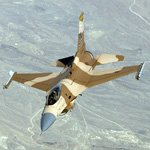China counterfeit electronics found in weapons

China’s government has failed to curb manufacturing of counterfeit military electronic parts by Chinese companies that are the “dominant source” of fakes in the U.S. defense supply chain, a Senate investigation found. The U.S. Air Force suspended in January a Shenzhen, China- based company from supplying parts to U.S. contractors after it sold about 84,000 suspect components, many of them installed on U.S. aircraft, according to an example cited in the U.S. Senate Armed Services Committee report released yesterday.
The panel’s report outlines the results of a 14-month investigation disclosing dozens of examples of suspected counterfeit electronic parts. Saying U.S. companies and the military services didn’t crack down on abuses, the committee said the defense industry “routinely failed to report cases of suspect counterfeit parts, putting the integrity of the supply chain at risk.”
The report didn’t cite any examples of counterfeit parts causing damage such as lives lost or planes that crashed. The committee said it found “overwhelming and undeniable evidence to support” the conclusion that China hasn’t taken steps to stop operations “that are carried out openly in that country.”
Denying Visas
“Rather than acknowledging the problem and moving aggressively to shut down counterfeiters, the Chinese government has tried to avoid scrutiny, including denying visas to committee staff to travel to mainland China as part of the investigation,” according to the report.
Geng Shuang, a spokesman at the Chinese embassy in Washington, didn’t respond to an e-mail yesterday seeking comment.
The Senate committee’s investigative staff amassed a database with 1,800 cases of counterfeiting involving about 1 million parts. It scrutinized 100 cases and found that 70 percent of the suspect parts were traced to Chinese companies. The U.K. and Canada followed China, based on the resale by companies in those countries of parts from China, according to the report.
The “vast majority of the 1,800 cases appear to have gone unreported to the Defense Department or criminal authorities,” the report found.
Night-Vision Sights
Suspect parts went into equipment ranging from thermal night-vision sights for Army weapons to computers installed on Lockheed Martin Corp. missile interceptors and transport aircraft as well as those made by L-3 Communications Holdings Inc. and Boeing Co., according to the panel’s report.
Questionable parts also made it into special forces helicopters, Raytheon Co.’s GPS-guided Excalibur artillery shell and General Dynamics Corp.’s Army Stryker Mobile Gun, according to the report.
The committee disclosed at a November hearing that it found counterfeit parts on at least seven aircraft, including the C-130J transport plane from Bethesda, Maryland-based Lockheed Martin and the P-8A Poseidon maritime patrol from Chicago-based Boeing.
Two new Air Force C-27J Spartans from New York-based L-3 deployed to Afghanistan had displays with suspect parts, according to the panel.
The committee traced memory chips in the L-3 to the company in Shenzhen, which also delivered an earlier counterfeit part L-3 discovered in October 2009, the panel said.
Company Suspended
The Air Force on January 13 suspended the company, Hong Dark Electronic Trade Co., from Pentagon contracting, according to a memo from the service.
“Hong Dark has supplied suspect counterfeit parts” to a middleman who then sold the parts to L-3 Communications, Boeing, Lockheed Martin, and Raytheon, among others, Air Force Deputy General Counsel Steven Shaw said in the memo.
Many of the 84,000 electronic parts from Hong Dark have been installed on aircraft such the C-17 transport and helicopters such as the AH-64 Apache and CH-46, according to Shaw.
After the November hearing, L-3 officials sent samples from 20 lots of parts purchased from the company for independent testing, which confirmed that all except two were suspect, according to the Senate committee.
L-3 also provided the committee an “extensive” list of equipment beyond the C-27J aircraft that contained suspect counterpart parts, such as the Traffic Alert and and Collision Avoidance System for preventing mid-air collisions used on several military programs, including the Global Hawk drone from Northrop Grumman Corp.
The defense industry has failed to utilize an existing database for sharing information, the Government-Industry Data Exchange, that’s intended to ease the dissemination of warnings on faulty parts and their manufacturers, the committee said.
Only 271 reports of suspect parts were disseminated in the defense supply chain in 2009 and 2010, the period when the committee identified 1,800 cases of suspect parts.